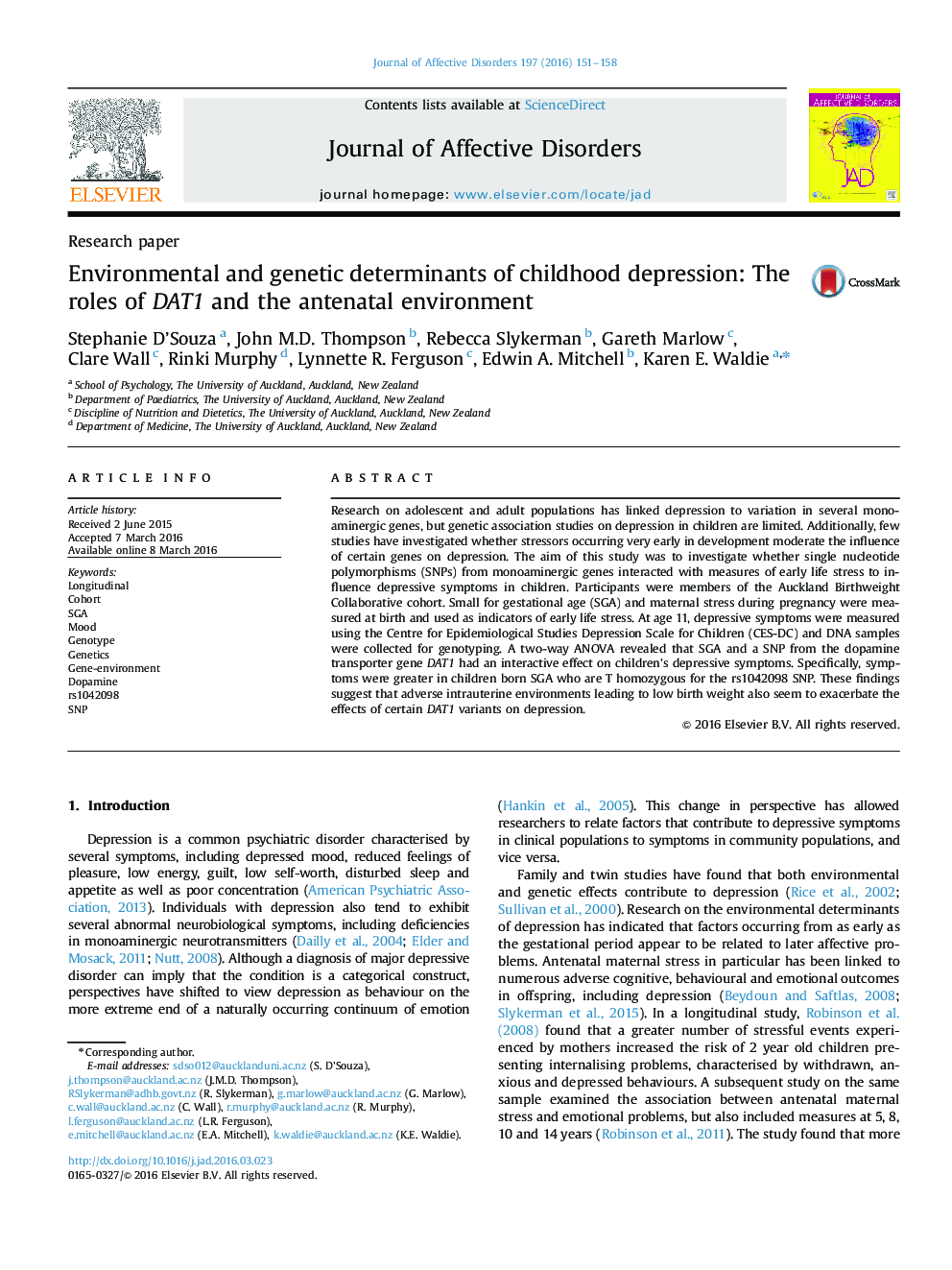| Article ID | Journal | Published Year | Pages | File Type |
|---|---|---|---|---|
| 6230267 | Journal of Affective Disorders | 2016 | 8 Pages |
â¢A SNP from the DAT1 gene interacted with measures of early life stress to influence depressive symptoms in children.â¢SGA and a SNP from the dopamine transporter gene DAT1 had an interactive effect on children's depressive symptoms.â¢Depression symptoms were greater in children born SGA who are T homozygous for the rs1042098 SNP.â¢Adverse antenatal environments leading to low birth weight may exacerbate the effects of certain DAT1 variants on depression.
Research on adolescent and adult populations has linked depression to variation in several monoaminergic genes, but genetic association studies on depression in children are limited. Additionally, few studies have investigated whether stressors occurring very early in development moderate the influence of certain genes on depression. The aim of this study was to investigate whether single nucleotide polymorphisms (SNPs) from monoaminergic genes interacted with measures of early life stress to influence depressive symptoms in children. Participants were members of the Auckland Birthweight Collaborative cohort. Small for gestational age (SGA) and maternal stress during pregnancy were measured at birth and used as indicators of early life stress. At age 11, depressive symptoms were measured using the Centre for Epidemiological Studies Depression Scale for Children (CES-DC) and DNA samples were collected for genotyping. A two-way ANOVA revealed that SGA and a SNP from the dopamine transporter gene DAT1 had an interactive effect on children's depressive symptoms. Specifically, symptoms were greater in children born SGA who are T homozygous for the rs1042098 SNP. These findings suggest that adverse intrauterine environments leading to low birth weight also seem to exacerbate the effects of certain DAT1 variants on depression.
